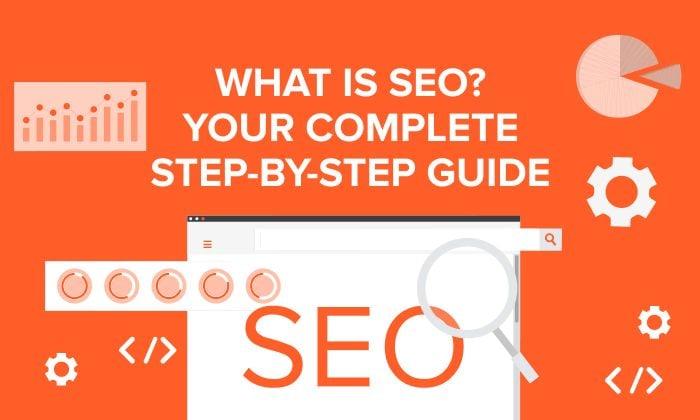
What do a logo and a well-oiled machine have in common? They both have the power to make or break your SEO success! While it may seem like a simple graphic, your logo is actually the secret weapon in your arsenal when it comes to climbing the search engine rankings. So buckle up and get ready to learn how your logo design can take your SEO game to the next level!
Types of logos and their impact on SEO
Logos are not just symbols to represent a brand; they also play a role in search engine optimization (SEO). Different types of logos can have varying impacts on a website’s search engine rankings. Let’s explore some of the common logo types and their potential effects on SEO:
Wordmark Logos: These logos consist of the brand name in a stylized font. While they are great for brand recognition, wordmark logos may not have as much impact on SEO since search engines prioritize images and alt text over text-based content.
Abstract Logos: Abstract logos are unique shapes or symbols that represent a brand. These logos can be effective for SEO if they are well-optimized with relevant alt text and metadata. However, abstract logos may not always clearly convey the brand’s message to search engines.
Icon Logos: Icon logos are simple, graphic symbols that represent a brand. These logos can have a positive impact on SEO if they are well-designed and easily recognizable. Incorporating keywords into the alt text of icon logos can also help improve search engine rankings.

Color psychology and its effect on SEO
When it comes to SEO, color psychology is an essential tool that many people overlook. The colors you choose for your website can greatly impact how users perceive your brand and can ultimately affect your search engine rankings. So, if you want to rank higher on Google, it’s time to start thinking about the colors you’re using on your site!
One of the most important things to consider when choosing colors for your website is the emotions they evoke. Different colors can create different moods and feelings in users, so it’s important to choose wisely. For example, **warm colors** like red and orange can evoke feelings of excitement and energy, while **cool colors** like blue and green can create a sense of calm and trustworthiness.
In addition to evoking emotions, colors can also impact how users navigate and interact with your site. By using **contrasting colors** for important elements like buttons and links, you can draw attention to them and encourage users to click. On the other hand, using **complementary colors** for your background and text can make your content easier to read and keep users on your site longer.
Ultimately, the colors you choose for your website can have a major impact on your SEO efforts. So, next time you’re redesigning your site, make sure to take color psychology into account. Who knew that something as simple as choosing the right shade of blue could be the key to ranking higher on Google
The importance of simplicity in logo design for SEO
When it comes to logo design for SEO, simplicity is key. Think about it – would you rather have a logo with a hundred different elements that confuses search engines, or a clean, streamlined design that catches the eye of both users and algorithms? The answer is clear: keep it simple, silly!
Remember, search engines love simplicity. They love clean lines, bold colors, and easy-to-read fonts. Trying to cram too much into your logo will only confuse Google and Bing, and trust me, you don’t want to be on their bad side. Keep it simple, and you’ll be rewarded with higher search rankings and more visibility.
So, how do you keep it simple when designing your logo for SEO? Here are a few tips to help you out:
- Avoid clutter: Don’t try to include every element of your business in your logo – pick one or two key elements and focus on those.
- Use negative space: Negative space can be a powerful tool in logo design for SEO. It not only adds visual interest but also helps search engines understand the hierarchy of your logo.
- Stick to a limited color palette: Too many colors can be overwhelming for both users and search engines. Stick to a few key colors that represent your brand and stick with them.

Incorporating keywords and SEO-friendly elements into logo design
When it comes to logo design, incorporating keywords and SEO-friendly elements can make a huge difference in how your brand is perceived online. Not only does it help with search engine rankings, but it also provides valuable information to potential customers right off the bat.
One way to seamlessly integrate keywords into your logo design is by choosing a font that reflects your brand’s personality. Whether it’s bold and eye-catching or sleek and modern, the right font can help convey your message without saying a word. Just remember, readability is key – no one wants to squint at a logo trying to decipher what it says.
Another clever way to add SEO-friendly elements to your logo design is by incorporating relevant symbols or icons. Whether it’s a subtle nod to your industry or a playful twist on your brand’s name, these elements can help reinforce your message and make your logo more memorable. Plus, who doesn’t love a good Easter egg?
So next time you’re brainstorming logo ideas, don’t forget to sprinkle in a few keywords and SEO-friendly elements. Your brand – and your search engine rankings – will thank you!

Measuring the success of logo design on SEO
One way to measure the success of logo design on SEO is by tracking the increase in website traffic after implementing a new logo. If you notice a spike in visitors clicking on your site, then congratulations! Your logo is doing its job and attracting attention.
Another indication of a successful logo design is if it is easily recognizable and memorable. If people can easily identify your brand just by seeing your logo, then you know you’ve hit the mark. Think about some of the most iconic logos out there – the golden arches of McDonald’s, the swoosh of Nike – these logos are so well-known that they don’t even need the company name attached to them.
Additionally, if your logo design is helping to improve your website’s search engine ranking, then you’re on the right track. Search engines love when websites are visually appealing and easy to navigate, so having a well-designed logo can positively impact your SEO efforts. Plus, if your logo is being shared and posted on other websites, it can help boost your backlinks and improve your online presence.
So, if you’re seeing an increase in website traffic, your logo is easily recognizable, and your SEO ranking is on the rise, then you can confidently say that your logo design is a success! Keep up the good work and continue to monitor the impact your logo is having on your SEO efforts. Who knew a little graphic could have such a big impact?
Utilizing alt text and image optimization for logo SEO
Do you ever feel like your logo is being overshadowed by other brands in search results? Fear not, because we have the solution for you! By utilizing alt text and optimizing your images, you can give your logo the SEO boost it deserves.
Alt text is like the secret ingredient that makes your logo stand out in a crowd of bland images. Think of it as the VIP pass that allows search engines to understand what your logo is all about. By adding descriptive alt text to your logo, you are making it easier for search engines to index and rank your image higher in search results. It’s like giving your logo a megaphone so it can shout “Look at me!” in a crowded room.
Image optimization is like giving your logo a makeover. By compressing your image files and reducing their size, you can make your logo load faster on your website. Search engines love fast-loading images, so this simple step can improve your logo’s visibility in search results. It’s like giving your logo a shiny new sports car to zoom past the competition.
In conclusion, alt text and image optimization are the dynamic duo you need to supercharge your logo’s SEO. So what are you waiting for? Give your logo the attention it deserves by implementing these simple but powerful strategies. Watch as your logo climbs the ranks in search results, leaving the competition in the dust. It’s time to show the world what your logo is made of!
The role of branding consistency in SEO optimization
Branding consistency is like the secret sauce of SEO optimization – you can’t have one without the other. Think of it as the peanut butter to your jelly, the Batman to your Robin, the yin to your yang. Without branding consistency, your SEO efforts are about as effective as trying to use a flip phone in 2021.
When your branding is all over the place like a squirrel on a sugar high, search engines don’t know what to make of your site. It’s like trying to follow a GPS that keeps sending you in circles – frustrating and ultimately pointless. But when you have a consistent brand, complete with recognizable colors, logos, and messaging, search engines can easily understand what your site is all about.
Consistency also helps build trust with your audience. Imagine if McDonald’s suddenly started using purple and orange instead of their iconic red and yellow – you’d probably drive right past the golden arches because you wouldn’t recognize them. The same goes for your brand – if your messaging and visuals are all over the place, customers won’t know what to expect from you.
So, the next time you’re tweaking your SEO strategy, remember that branding consistency is the key to success. It’s like hitting the jackpot in a game of SEO slots - everything falls into place, and your site shoots to the top of the search results. Plus, it makes your marketing efforts a whole lot easier – no more trying to reinvent the wheel every time you create a new campaign. So, embrace the power of branding consistency and watch your SEO soar to new heights!
FAQs
Why does logo design influence SEO success?
Well, you see, search engines are like picky art critics. They love a good-looking logo just as much as they love well-organized content. A visually appealing logo can keep visitors on your site longer, which can boost your SEO rankings.
How does logo design impact brand visibility?
Think of your logo as your brand ambassador. A well-designed logo can make your brand instantly recognizable and memorable, helping your website stand out in a sea of competition. This increased brand visibility can lead to more traffic and higher search engine rankings.
What role does color play in logo design and SEO?
Color psychology is no joke. Different colors evoke different emotions and perceptions in people. Choosing the right colors for your logo can help convey your brand’s message and attract your target audience. Plus, using consistent colors across your website can improve user experience, which search engines love.
How can a logo design affect website loading speed?
Believe it or not, the size and complexity of your logo can impact your website’s loading speed. A large, high-resolution logo file can slow down your site, leading to a poor user experience and lower search engine rankings. Opt for a simple, optimized logo that looks great and loads quickly.
What are some best practices for incorporating logo design into SEO strategy?
First and foremost, make sure your logo is responsive and displays correctly on all devices. This will ensure a seamless user experience and improve your SEO rankings. Additionally, use alt text for your logo image to help search engines understand its relevance to your website.
In Conclusion: Logo Power Rules!
So there you have it, folks! Don’t underestimate the power of logo design when it comes to SEO success. Remember, a well-designed logo can not only make your brand memorable and recognizable, but it can also boost your search engine rankings in ways you never imagined. So go forth, dear readers, and let your logos shine bright like a diamond in the competitive online world. Happy optimizing!












